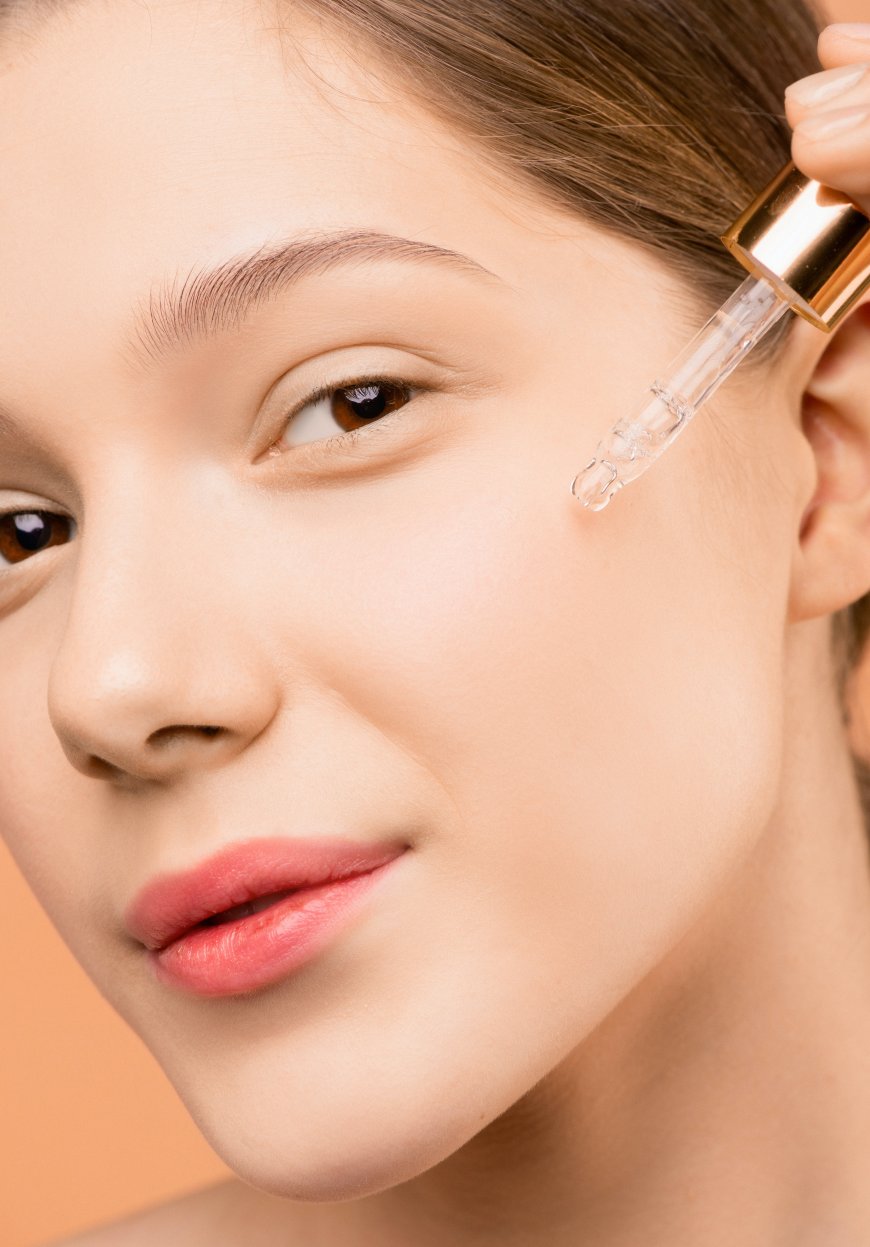Amazing Ways to Maintain Healthy Combination Skin
Skincare can be a tough nut to crack until you read this...

Combination skin is a common type where the skin is oily in some areas (usually the T-zone, which includes the forehead, nose, and chin) and dry or normal in others (usually the cheeks). Finding the right skincare products and routines for oily and dry areas can make it challenging.
Some common characteristics of combination skin include:
-
Oily T-zone: The skin in the T-zone tends to produce more oil than the rest of the face, which can lead to a shiny appearance and clogged pores.
-
Dry or normal cheeks: The skin may feel dry or tight and more prone to flakiness or sensitivity.
-
Large pores: The pores in the T-zone may be more visible and prone to becoming clogged, while the pores on the cheeks may be smaller and less noticeable.
-
Occasional breakouts: People with combination skin may be more prone to acne in the T-zone, especially around the nose and chin.
How Can You Figure Out If You Have Combination Skin?
Paying attention to how your skin feels on any day is critical. Your skin's texture can disclose a lot about its type. People with combination skin can feel it through their T-zone—the nose, forehead, and chin—usually remains oily while other areas feel dry. Combination skin is also indicated by wide, frequently clogged pores around the nose but tiny, barely perceptible pores on the cheeks and other parts of the face. Combination skin often feels tight and dry around the cheekbones after cleansing, yet clean, fresh, and oil-free around the nose area. These are some clear signs of having combination skin.
Effective Skin Care Tips to Manage Combination Skin
A regular skincare routine tailored to promote more balanced skin is necessary to manage combination skin. Thus, here are some pointers to assist you in efficiently maintaining a combination skin.
Here are some effective skin care tips for managing combination skin:
-
Cleanse your skin twice a day: Use a gentle, water-soluble cleanser that effectively removes dirt, makeup, and excess oil without stripping your skin of its natural oils. Avoid using bar soap or harsh cleaners that can dry out your skin.
-
Use a toner: After cleansing, use an alcohol-free toner formulated for combination skin. A toner helps to balance the skin's pH, soothe irritation, and reduce the appearance of pores.
-
Moisturize daily: Use an oil-free lightweight moisturizer that hydrates your skin without clogging your pores. Apply it daily to your face and neck, especially after cleansing and toning.
-
Use sunscreen: Protect your skin from the sun's harmful rays with an SPF of at least 30 days. Look for a sunscreen that is non-comedogenic and doesn't clog your pores.
-
Exfoliate regularly: Exfoliate your skin once or twice a week to remove dead skin cells and unclog your pores. Use a gentle exfoliating scrub that contains natural ingredients like fruit enzymes or jojoba beads.
-
Spot treat acne: If you have acne, use a spot treatment that contains benzoyl peroxide or salicylic acid. Apply it only to the affected areas, and avoid using it on dry or sensitive skin.
-
Use a face mask: Use it once a week to nourish your skin and boost hydration. Look for a mask formulated for combination skin and contains ingredients like clay or charcoal that help detoxify your skin.
Finding the right skincare routine for your combination skin may take trial and error. Be patient and consistent, and always listen to your skin. If a product irritates or makes your skin feel uncomfortable, discontinue use and try something else.
Other than these basic skin care tips, remember that maintaining healthy combination skin requires a holistic approach that considers your diet, lifestyle, and skincare routine. By making small but consistent changes, you can help keep your skin healthy and radiant for years to come. Here are some general lifestyle changes you can consider to get healthy combination skin.
-
Eat a balanced diet: A healthy diet rich in fruits, vegetables, lean proteins, and healthy fats can help to nourish your skin from the inside out. Avoid sugary and processed foods, which can cause inflammation and breakouts.
-
Drink plenty of water: Staying hydrated is essential for healthy skin. Drink at least 8-10 glasses of water a day to help flush toxins from your body and keep your skin looking radiant.
-
Get enough sleep: Lack of sleep can cause stress and inflammation in the body, leading to breakouts and other skin issues. Aim to get 7-8 hours of sleep each night to help your skin repair and regenerate.
-
Manage stress: Chronic stress can disrupt hormone levels and trigger breakouts. Practice stress-reducing techniques like meditation, yoga, or deep breathing to help calm your mind and improve your skin.
-
Exercise regularly: Regular exercise can help to boost circulation, reduce inflammation, and improve skin health. Aim for at least 30 minutes of moderate exercises, such as brisk walking or cycling, most days of the week.
-
Avoid smoking and excessive alcohol consumption: Smoking and alcohol consumption can damage your skin and lead to premature aging. If you smoke, try to quit, and limit your alcohol intake to one daily drink.
-
Consult a dermatologist: If you're struggling with persistent skin issues, consider consulting a dermatologist. They can help you identify your skin problems' root causes and recommend effective treatments.
Things To Avoid If You Have Combination Skin
When it comes to a skincare routine for combination skin, there are a few things to avoid that can aggravate your skin:
-
Harsh cleansers: Avoid using harsh, drying cleansers that can strip your skin of its natural oils. Instead, opt for a gentle, water-soluble cleanser that removes dirt, makeup, and excess oil without leaving your skin tight or dry.
-
Heavy moisturizers: Avoid using heavy, oily moisturizers that can clog your pores and make your skin greasy. Look for a lightweight, oil-free moisturizer that hydrates your skin without adding excess oil.
-
Alcohol-based toners: Avoid using toners that contain alcohol, as they can be harsh and dry on your skin. Instead, opt for an alcohol-free toner formulated for combination skin.
-
Over-exfoliating: While exfoliating is important for removing dead skin cells and unclogging pores, it can damage and irritate your skin. Stick to exfoliating once or twice a week, and avoid using harsh scrubs or exfoliants.
-
Using too many products: Using too many products in your skincare routine can overwhelm your skin and lead to irritation. Keep your skincare routine simple and streamlined, using only the products that your skin needs.
-
Skipping sunscreen: Skipping sunscreen can lead to sun damage, premature aging, and an increased risk of skin cancer. Always wear sunscreen with an SPF of at least 30, even on cloudy days.
-
Using hot water: Avoid using hot water on your face, as it can strip your skin of its natural oils and cause irritation. Instead, use lukewarm water to cleanse your skin and pat it dry gently with a soft towel.
By avoiding these common skincare mistakes, you can help to keep your combination skin healthy, balanced, and looking its best.
Hope these tips will help you maintain healthy and glowing skin!











